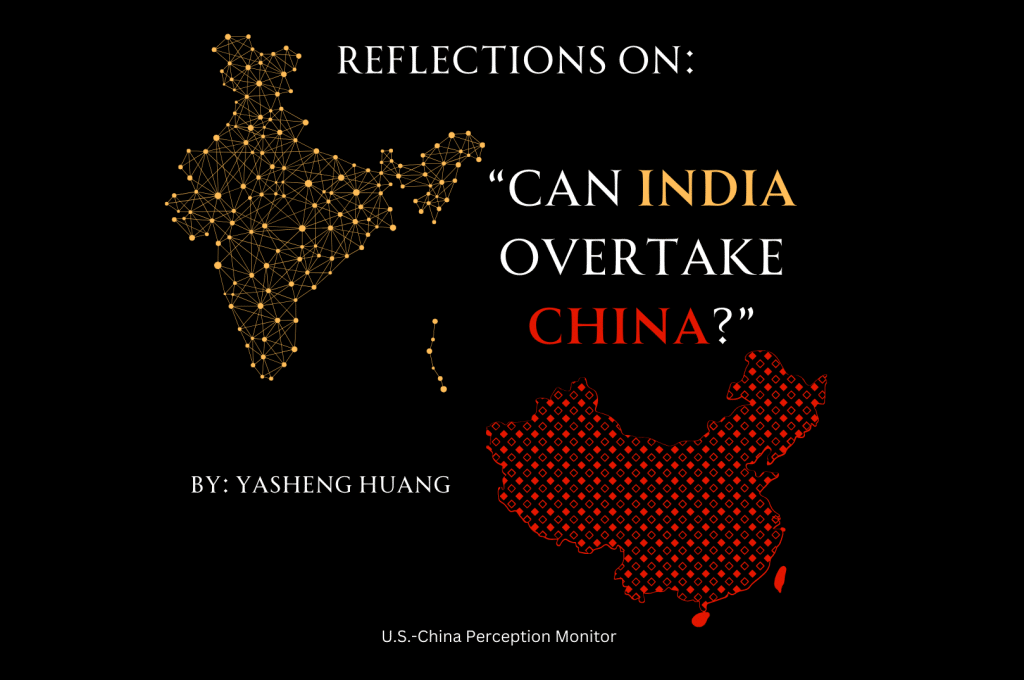When Will China Use Force to Reunite with Taiwan? Hu Xijin Explains His Position
Exclusive: Is US Admiral Harris Resurrecting the Quadrilateral Security Dialogue?
Last week, in an article about the Australian defense budget hike, I mentioned, almost irrelevantly, that the Quadrilateral Security Dialogue (QSD) might be making a comeback.
In a recent speech at this year’s Raisina Dialogue in New Delhi, Admiral Harry B. Harris, Jr. Commander of the United States Pacific Command welcomed the notion of quadrilateral dialogue between the United States, Japan, India, and Australia. Although he did not mention the country specifically, many observers have interpreted Harris’s statements as a multilateral way for the United States to try to balance China.

“Last year, India hosted Japan and Australia for its first ever high-level trilateral dialogue in New Delhi,” said Adm. Harris, “Some of the topics discussed were maritime security — including freedom of navigation patrols – and trilateral cooperation in the Indian and Pacific Oceans. An idea to consider is perhaps expanding this tri-lateral to a quadrilateral venue between India-Japan-Australia and the United States. We are all united in supporting the international rules-based order that has kept the peace and is essential to all of us.”
The United States has recently run freedom of navigation operations (FONOPS) in the South China Sea. This includes a late January 2016 operation in which the USS Curtis Wilbur (DDG-54) sailed within twelve nautical miles of the disputed Triton Island. Triton Island, one of the Paracel Islands, has been disputed between China and Vietnam since China seized the island in 1974 from the then South Vietnamese government.

Mixed messages from Australia

The QSD was an informal strategic dialogue created by Japanese Prime Minister Shinzo Abe in 2007. However, the QSD met a rough patch under Australian Prime Minister Kevin Rudd, who sought closer ties with China. Many Australian politicians opposed leaving the QSD, including then Leader of the Opposition Tony Abbott.
Under Rudd’s successor, Julia Gillard, Australia sought closer relations with the United States and welcomed United States Marines in Darwin, Australia which overlooks the Lombok Strait and the Timor Sea.
Trilateral relations
While the dialogue never officially resumed after the Rudd ministry, cooperation continued bilaterally and even trilaterally among the four individual countries. In his speech, Adm. Harris mentioned that India, Australia, and Japan held a trilateral dialogue in New Delhi. The dialogue took place on June 8, 2015. David Lang, in a July 9, 2015 article for the Australian Strategic Policy Institute wrote that the “trilateral cooperation between Australia, Japan and India is intended to support America’s presence in the Asia–Pacific and demonstrate a public commitment to international law, global norms and the established regional order.”
Japan has, in recent years, consistently participated with the United States and India in the annual Malabar naval exercise. The tense relations in the region have not been helped by this trilateral cooperation. This past week when the United States and India announced that they would be holding this year’s exercise off the northern coast of the Philippines in the South China Sea. This is the first time that the exercise will take place in a body of water other than the Indian Ocean, where the exercises usually take place.

However, despite Adm. Harris’s call for closer dialogue between the four countries, and Vice Adm. Joseph Aucoin’s statement that Australian FONOPs operations would be “valuable”, it remains unlikely that the dialogue will lead to joint operations in the South China Sea, particularly from India. India does not have a history of joining joint operations and seeing as China has pursued close relationships with Pakistan and Sri Lanka, India faces the possibility of Chinese retribution of Indian operations in the South China Sea by stationing Chinese military forces in the China-friendly ports of India’s neighbors.
Chinese reception

Adm. Harris’s statements come at an incredibly tense time as the perceived Chinese aggressiveness in the South China Sea have put China add odds with ASEAN neighbors. Adm. Harris’s statements are sure to earn strong criticism from China, as previous attempts of cooperation between the United States, India, Japan, and Australia is immediately interpreted as encirclement of China.
“India, Japan, Australia, the United States and so many other like-minded nations can aspire to operate anywhere on the high seas and airspace above them,” Adm. Harris said.
“The idea of safeguarding freedom of the seas and access to international waters and airspace is not something new for us to ponder – this is a principle based upon the international, rules-based global order that has served this region so well. And for decades, the United States has conducted freedom of navigation patrols – or FONOPs – without incident. No nation should perceive FONOPs as a threat.”
Whether or not strategic dialogue returns under the QSD moniker is an inconsequential matter compared to the larger issue of the relationship of the individual countries with China. The security dialogue, however, is informal and should not by any means be interpreted as a military alliance. More than anything, security cooperation between the four countries would be to declare shared international values including the “freedom of navigation” and the “freedom of the seas.”
While the stated goal of protecting freedom of the seas and navigation in the Indo-Asia-Pacific region was what the Adm. Harris said, Chinese reception of the announcement will be sure to interpret Adm. Harris’s statements as a call for united military muscle to counter China in the region.
By AARON WALAYAT Mar. 4 2016 on USCNPM








